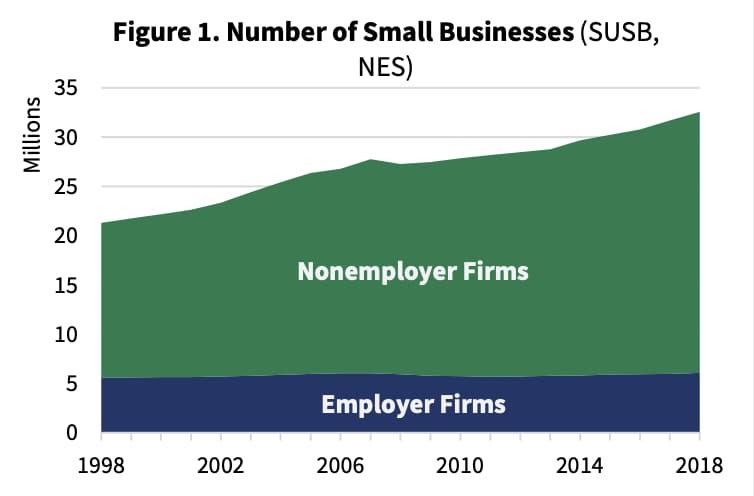Small Businesses Push Back Against Trump-Era Tariffs Hindering Economic Expansion
Small enterprises throughout the United States are increasingly vocal in their opposition to the tariffs introduced under the Trump administration, which continue to cast a shadow over their operations. These trade levies, originally intended to counteract unfair foreign trade practices, have instead led to elevated costs and supply chain interruptions, according to many business owners. The ongoing litigation surrounding these tariffs underscores the contentious debate over trade policy and its profound effects on the nation’s economic fabric.
Challenges frequently cited by small business owners include:
- Escalating expenses that translate into higher prices for end consumers
- Competitive disadvantages compared to foreign firms not subject to similar tariffs
- Limited access to a variety of international suppliers and markets
- Uncertainty complicating strategic planning and investment decisions
| Area of Impact | Effect on Small Businesses | Reported Increase (%) |
|---|---|---|
| Imported Material Costs | Rising input expenses | 15% |
| Export Limitations | Decline in overseas clientele | 10% |
| Supply Chain Interruptions | Production delays | 12% |
As these legal disputes progress, both policymakers and the business community are closely monitoring the outcomes, which could redefine U.S. trade strategies and bolster economic resilience. Small businesses are hopeful that future policies will create a more equitable environment conducive to innovation and sustainable expansion.
Escalating Legal Struggles as Businesses Demand Relief from Tariff Burdens
Across the nation, small and medium-sized businesses are intensifying their legal challenges against tariffs enacted during the Trump era. These companies contend that the tariffs have compressed profit margins, caused supply chain disruptions, and compelled price increases that ultimately affect consumers. The federal court cases reveal a growing frustration among entrepreneurs who argue that these trade restrictions, intended to shield domestic industries, have instead inflicted widespread financial damage without delivering the anticipated economic advantages.
Primary issues raised by plaintiffs include:
- Surging costs for imported raw materials, inflating production expenses
- Loss of competitive positioning in both domestic and global markets
- Volatile trade policies creating uncertainty in long-term business strategies
| Impact Category | Reported Effect | Industry Sector |
|---|---|---|
| Raw Material Expenses | Up to 30% increase | Manufacturing |
| Supply Chain Delays | Up to 3 months delay | Retail & Wholesale |
| Price Competitiveness | Decline by 15% | Consumer Goods |
Economic Analysts Examine Long-Term Effects of Tariffs on Small Business Viability
Experts in economics caution that the persistence of tariffs from the Trump administration could significantly erode the global competitiveness of U.S. small businesses. Unlike large multinational corporations, smaller firms often lack the financial buffers to absorb increased costs, forcing many to either raise prices or downsize their workforce. Analysts emphasize the cascading consequences of these tariffs, which disrupt supply chains and inflate operational costs across sectors such as manufacturing, retail, and agriculture.
Analysts highlight several critical concerns:
- Increased prices for imported raw materials squeezing profit margins
- Challenges in competing with international companies not subject to similar tariffs
- Potential reduction in export opportunities due to retaliatory tariffs abroad
- Heightened risk of business closures among firms with limited capital reserves
| Impact Area | Small Business Sector | Projected Outcome |
|---|---|---|
| Supply Chain Disruptions | Manufacturing | Delays and increased costs |
| Market Accessibility | Agriculture | 15% reduction in exports |
| Pricing Strategies | Retail | Price increases between 15-25% |
| Employment | Various sectors | Job reductions and hiring freezes |
Policy Proposals Targeted at Boosting Small Businesses and Expanding Market Reach
In light of the mounting difficulties small businesses face under the current tariff framework, lawmakers are advancing policy reforms aimed at easing financial burdens and enhancing access to markets. Central to these proposals is the simplification of regulatory processes, which would reduce administrative hurdles and empower smaller companies to compete more effectively both domestically and internationally. Advocates stress the necessity of creating a level playing field that safeguards the interests of small-scale producers and vendors.
Key components of the proposed reforms include:
- Lowering tariff rates on essential raw materials utilized by small manufacturers
- Streamlining export documentation and customs procedures
- Launching dedicated advisory services and support networks for small business owners
- Developing advanced digital platforms to facilitate market entry and customer engagement
| Policy Initiative | Anticipated Benefit | Implementation Timeline |
|---|---|---|
| Tariff Reductions | Decreased input costs, improved profitability | Q3 2024 |
| Customs Process Simplification | Accelerated clearance, fewer delays | Q4 2024 |
| Support Services Rollout | Enhanced guidance, greater market participation | Q1 2025 |
| Digital Platform Deployment | Expanded reach, improved sales channels | Q2 2025 |
Final Thoughts on Tariffs and the Future of Small Businesses
The ongoing legal disputes over tariffs enacted during the Trump administration continue to place small businesses in a challenging position, grappling with rising costs and uncertainty. Their mounting resistance sheds light on the broader economic consequences of trade policies formulated in Washington and prompts critical reflection on the future trajectory of U.S. trade relations. The resolution of these cases will be pivotal, potentially setting a precedent that shapes tariff enforcement and international commerce for years ahead.







